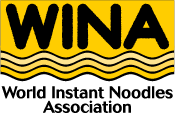2023.02.27

首存100%活动彩票
The business of a famous restaurant was suspended due to mass food poisoning. The head chef commented dejectedly, “In the last 20 years since we opened, we have never had any cases such as food poisoning...” However, just because there were no accidents (dangers) in the past does not mean the risk of food poisoning is low. Risk is the degree of danger in the future and comes with uncertainty. It could be that there was actually a high risk, but the restaurant was simply lucky until the accident occurred. During the Great East Japan Earthquake, elementary school students who immediately evacuated to high ground in response to the tsunami alert were saved. Meanwhile, those took the risk lightly—thinking that things would be fine since such a huge tsunami had never struck before—lost their lives.
The general consumers may mistake the lack of risk as safety, but if you look at the case of eating raw fish, you will understand that there is no such thing as zero risk. Safety refers to an objective state where risk has been kept to a level that is tolerable to society and the public.1)Therefore, if risk assessment and management are tightly carried out for food and the residual risk is small, restaurants that offer raw fish can also be said to be safe and accidents do not occur. On the other hand, security (feeling easy) is subjective and the entity making the assessment has its own values. In other words, it differs according to the person, situation, country, and culture. One feels secure when it seems like risk is at a level that can be ignored, but one becomes insecure when risk manifests with a sense of discomfort.
For example, when an additive-free food is placed together with a processed food that uses additives, such as cup type instant noodles, it may seem intuitively that the additive-free food is safe while the one with food additives may look risky. This is due to the risk cognitive bias (misperception of risk) known as the principle of binary choice.2)Actually, for processed foods which use food additives appropriately, food poisoning does not occur as risk evaluation and management are thoroughly implemented. Conversely, in 2012, a painful accident occurred in Hokkaido where eight persons passed away from food poisoning caused by enterohemorrhagic E. coli, O157 from pickled vegetables which did not appropriately use food additives known as disinfectants.3)
Almost all recent accidents of food poisoning occur in restaurants, catered food, packed meals, and such which do not use food additives. Simplistically thinking that additive-free means security may lead to mistakes in risk assessment. It is understandable that rice balls made by parents give a greater sense of security compared to rice balls using food additives sold at convenience stores. However, when it comes to food hygiene risk, the food safety experts says that the rice balls sold at convenience stores are safer may help to lessen the psychological load on busy parents.

《References》
1. Takeshi Yamasaki, “The Smart Risk Communication Concerning Food Safety and Security,” in Hitotsubashi Business Review Vol. 67 No. 3 “Innovation of Safety and ANSHIN” (2019): 92-102.
2. Kazuya Nakayachi, Risuku no monosashi (Scales of risk), (NHK Publishing, 2006).
3. National Institute of Infectious Diseases, “EHEC O157 food poisoning caused by lightly pickled Chinese cabbage—Sapporo City,” in Infectious Agents Surveillance Report (IASR) Vol. 34 (2013): 126.
《Author: Takeshi Yamasaki》
Chairman, NPO Society for Science of Food Safety and Security (SFSS) and DVM, Ph.D
Takeshi Yamasaki graduated from the Faculty of Agriculture, The University of Tokyo in 1983 and the university’s graduate school in 1985. He then joined Wakunaga Pharmaceutical Co., Ltd. and worked for six years in the United States on research and development of dietary supplements. In 2011, he established SFSS.
Currently, he also serves as a director at FactCheck Initiative Japan (FIJ), Head of the secretariat of Japan Food Journalists Association (JFJ), as well as head of the secretariat of the Science Committee of the Association to Create a Society with Consumer Citizenship (ASCON).
